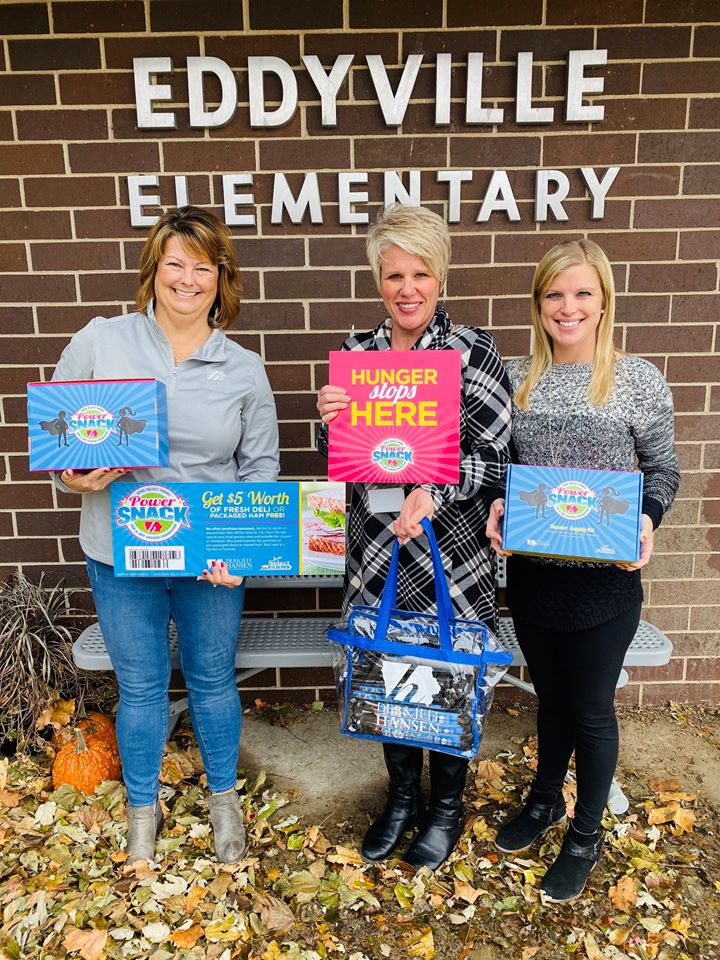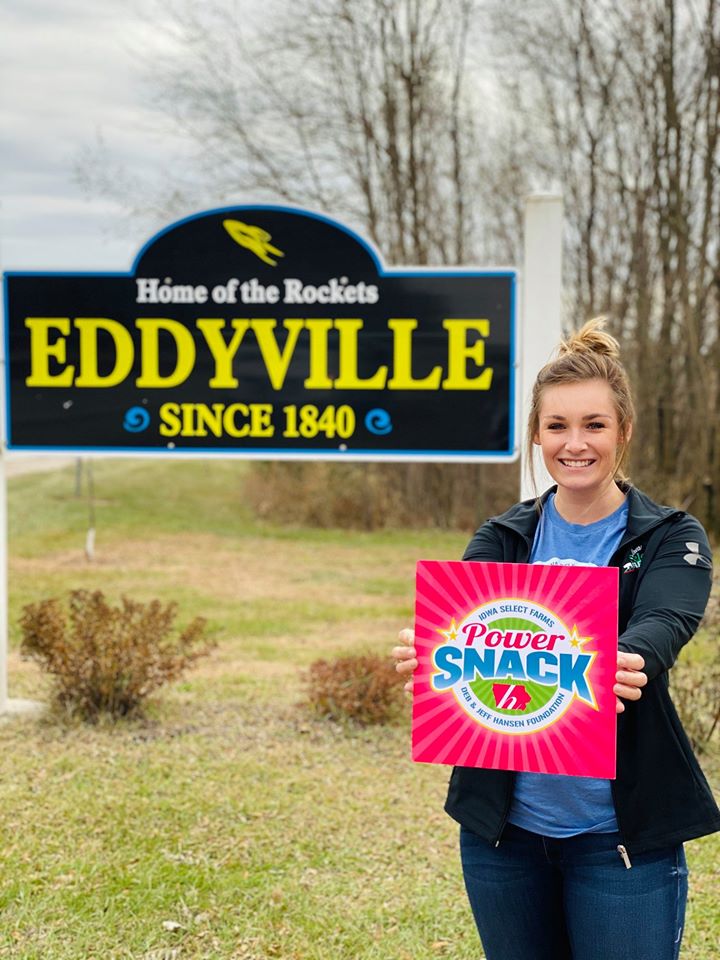Eddyville Elementary Receives Power Snacks
posted on Thursday, November 21, 2019

“Food insecurity among our students is a huge concern of mine as a building administrator,” said Eddyville Elementary School Principal, Jil Nelson. “When a child is hungry, they can’t focus and their ability to learn is affected.”
If you’ve been following along with our Power Snack Program deliveries, you know that we’ve talked with many teachers and school staff who have all said the same thing—children who come to school hungry have a harder time focusing and are not receiving the right amount of nutrients at home. Food insecure children have no control over this situation and often are left to eating cheap and processed foods.
According to the USDA’s MyPlate guidelines, children need up to six ounces of lean protein daily, depending on their age and gender.
The Deb and Jeff Hansen Foundation's Power Snack Program provides students with $5 coupons for a pound of shaved or sliced deli ham and $3 coupons for a loaf of whole wheat bread and currently supports 65 students at Eddyville Elementary – a contribution valued at $2,080.
Combining the energy and carbohydrates of whole wheat bread with the protein of ham means the children will have made themselves a real Power Snack. Not only is ham delicious and easy-to-prepare, but it’s also full of flavor and promotes growth.
According to the National Pork Board, pork loin, tenderloin, and ham are excellent sources of thiamin, niacin, riboflavin, vitamin B-6, phosphorus and protein, and a good source of zinc and potassium. The USDA MyPlate guidelines recommend children eat up to six ounces of lean protein daily, depending on age and gender.
To make sure that no child ever goes hungry at Eddyville Elementary, children are never turned away when they express an interest in more food. In fact, each child is allowed to receive seconds at both breakfast and lunch. And, in an order to teach students the importance of helping out their classmates, Eddyville has a share table. The share table is a place where students can put unused and unopened food items for other students to eat in school or take home.
“We are continually striving to get the word out and identify the students that truly are in need of these food-assistance programs,” continued Nelson. “We care deeply about our students and want to help them succeed. This program is going to get them the nutrients that they need to stay focused and engaged in our classrooms."

Subscribe to our newsletter: Get fresh articles delivered straight to your inbox.
Subscribe